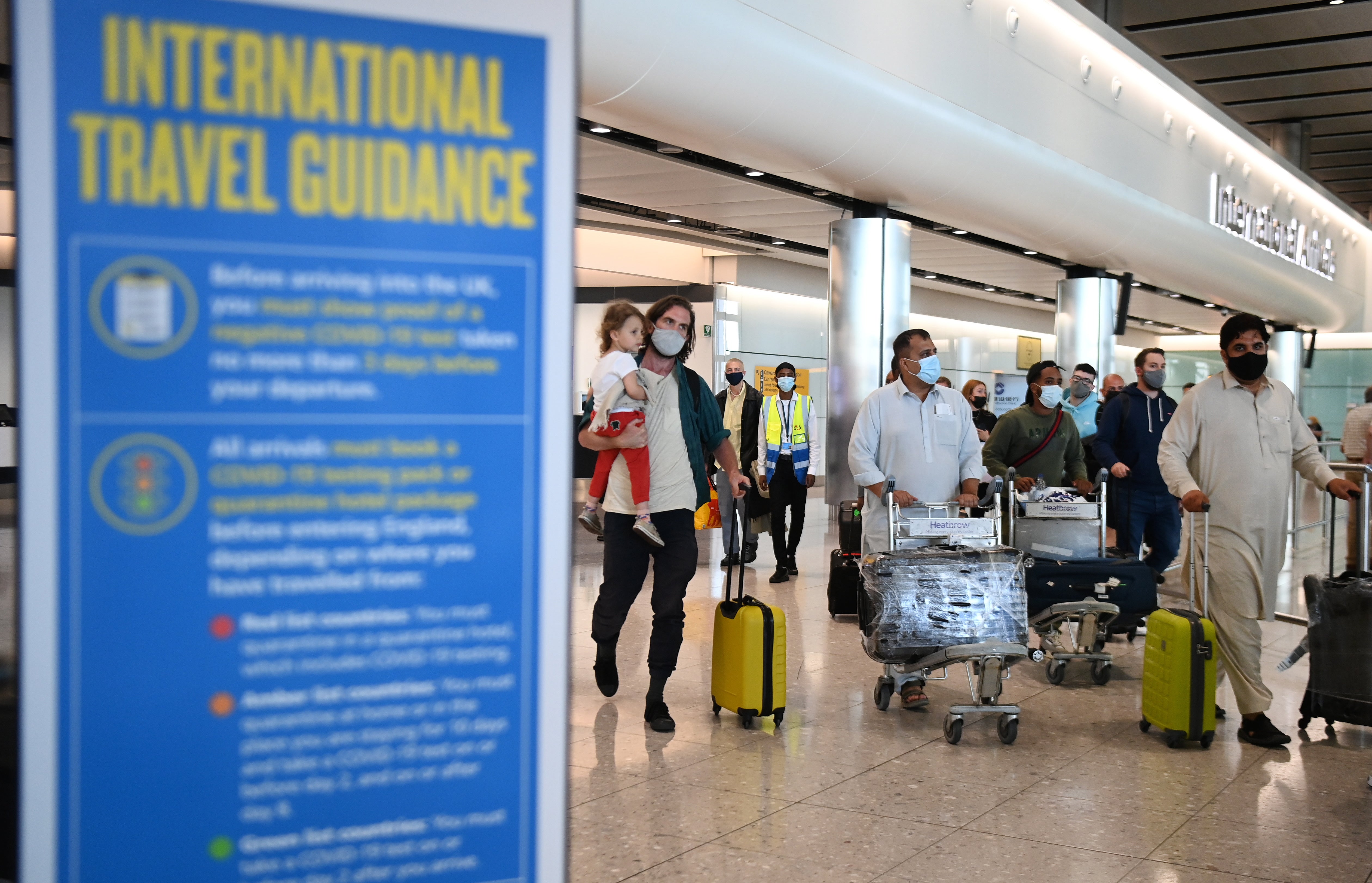Do I need a Covid test to travel to Northern Ireland?
Simon Calder answers your questions on travelling to the Emerald Isle, PCR testing and declaration forms


Q I am travelling from London to Belfast for a funeral next week. I am struggling to find clear instruction on whether I require a Covid test before flying, and if so what test? I am flying with British Airways/Aer Lingus and am at my wits’ end working it out.
Name supplied
A Sorry to hear of the reason for your journey. For any intra-UK journey between the nations, such as England to Northern Ireland, no testing or documentation is required. (The only travel restrictions I am aware of are between Scotland and Blackburn, Bolton, Manchester and Salford – the latter two starting from tomorrow.)
Having said that, individual nations make their own requests about travellers’ behaviour in a bid to reduce the risks. While these have no legal force, they should be respected.
If you plan to stay overnight in Belfast, Northern Ireland’s executive asks you to take a rapid lateral flow device (LFD) test before travel.
“You should only travel if the test is negative,” the Belfast authority says. “You should also take an LFD test on days two and eight of your stay.”
In addition, the recommendation is: “You should take a rapid lateral flow device test (LFD) before you begin your journey home.”
Tests requested by the authorities for intra-UK journey are the exceptions to the general rule that you cannot use free NHS tests for the purposes of travel.
Finally, for completeness: the Scottish government recommends an LFD test before going to the Scottish islands: three days before you plan to travel and then again on the day of departure.

Q After postponing a holiday from last summer and then switching destinations from a red list to an amber list country, we are hoping to go to the Dominican Republic on 24 July. We are happy to self-isolate on return and take the required PCR tests.
Will we be required to complete any forms stating the reason for our trip, as the UK government says non-essential travel to amber list countries is not permitted?
Also, are there any companies who will provide us with travel insurance for a holiday to an amber country?
R A Mac
A “The UK government says non-essential travel to amber list countries is not permitted” – I can understand you drawing that conclusion.
After all, the prime minister said on 19 May that an amber country “is not somewhere where you should be going on holiday, let me be very clear about that”.
Later, the justice minister, Robert Jenrick, insisted: “You wouldn’t drive through an amber light at the traffic light.” (In fact, the Highway Code says it is appropriate to drive through an amber light “after you have crossed the stop line or are so close to it that to pull up might cause an accident”.)
But these are ministers from the same government that, on 17 May, lifted all restrictions about international travel from the UK. For 19 weeks prior to that, only essential travel anywhere abroad (apart from Ireland) was banned. Now, though, you can go anywhere that will have you. The Declaration to Travel form is history; no one will question your motive. Be aware, though, that most destinations require some online red tape ahead of your trip.
The tourism-dependent Dominican Republic does not demand any test in advance from visitors from the UK. Instead, the authorities will administer a rapid diagnostic breath test “to a percentage of randomly-selected passengers on arrival”.
Even though coronavirus infection rates are much lower in your destination than the UK, the Foreign Office ”advises against all but essential travel to the whole of the Dominican Republic based on the current assessment of Covid-19 risks”. This has the effect of invalidating standard travel insurance. However, insurers such as Battleface and Staysure have responded by offering policies specifically designed for travel against Foreign Office advice.
Finally, it is good to see that you are fully aware of the quarantine and testing rules when you return.

Q If guidance was to change for the better while on holiday, is it safe to assume you can cancel an unnecessary PCR test if need be?
Lee
A The government says it gives “green list” status to destinations that have low coronavirus rates, few “variants of concern”, high vaccination rates and good genomic sequencing capabilities. Were ministers to follow these parameters, far more countries would “go green” – ie the number of places from which quarantine is required would reduce rapidly.
The other benefit that goes with green list status is that you need book only one PCR test (to be taken on the day of arrival back in the UK, or one of the next two days) rather than two. There is no need to book the optional day five “test to release”, of course.
Should the government decide to categorise countries based on data, then this summer a fair number of travellers will find themselves in the pleasing position of having fewer restrictions than they were expecting on their return to the UK.
The category that counts is that prevailing at the time you arrive back in the UK. Unfortunate holidaymakers who sought to take advantage of Portugal’s green list status found this out to their cost when they found the country moved to “amber”, requiring 10 days of self-isolation. But all the indications are the overall direction of travel should be from amber to green.
Who knows, the UK may even follow many other countries in accepting that vaccinated people pose less of a risk than those who have not yet been jabbed?
Given the uncertainty, I do not recommend that you book any tests for returning to the UK until very shortly before your departure for the UK.
There is not usually any financial benefit for booking early, and the later you leave it the more opportunity there is for things to change to your advantage. On my trips so far this summer, I have booked the tests on my last night before flying home.
Email your questions to s@hols.tv or tweet @simoncalder
Join our commenting forum
Join thought-provoking conversations, follow other Independent readers and see their replies
Comments

Bookmark popover
Removed from bookmarks